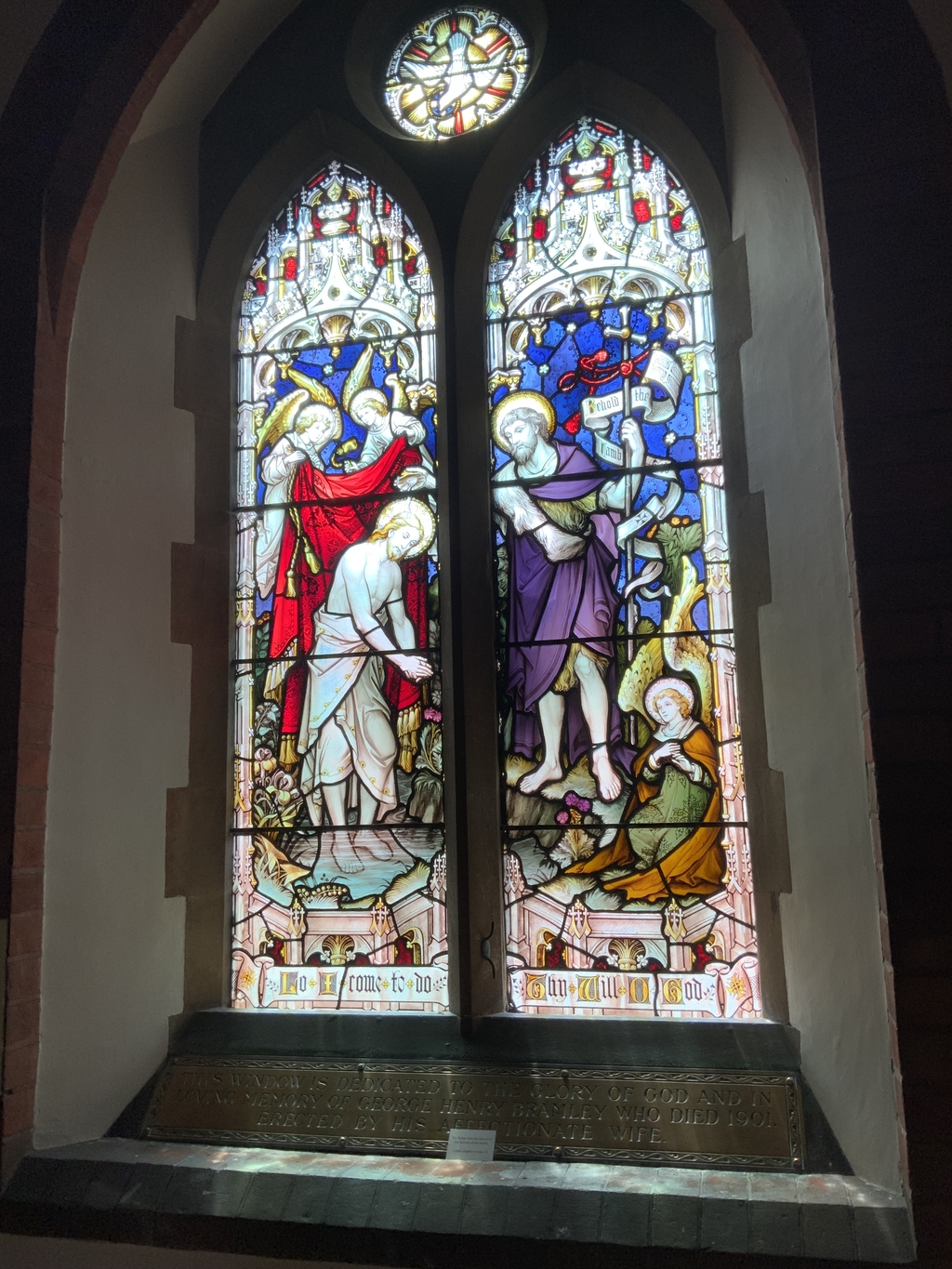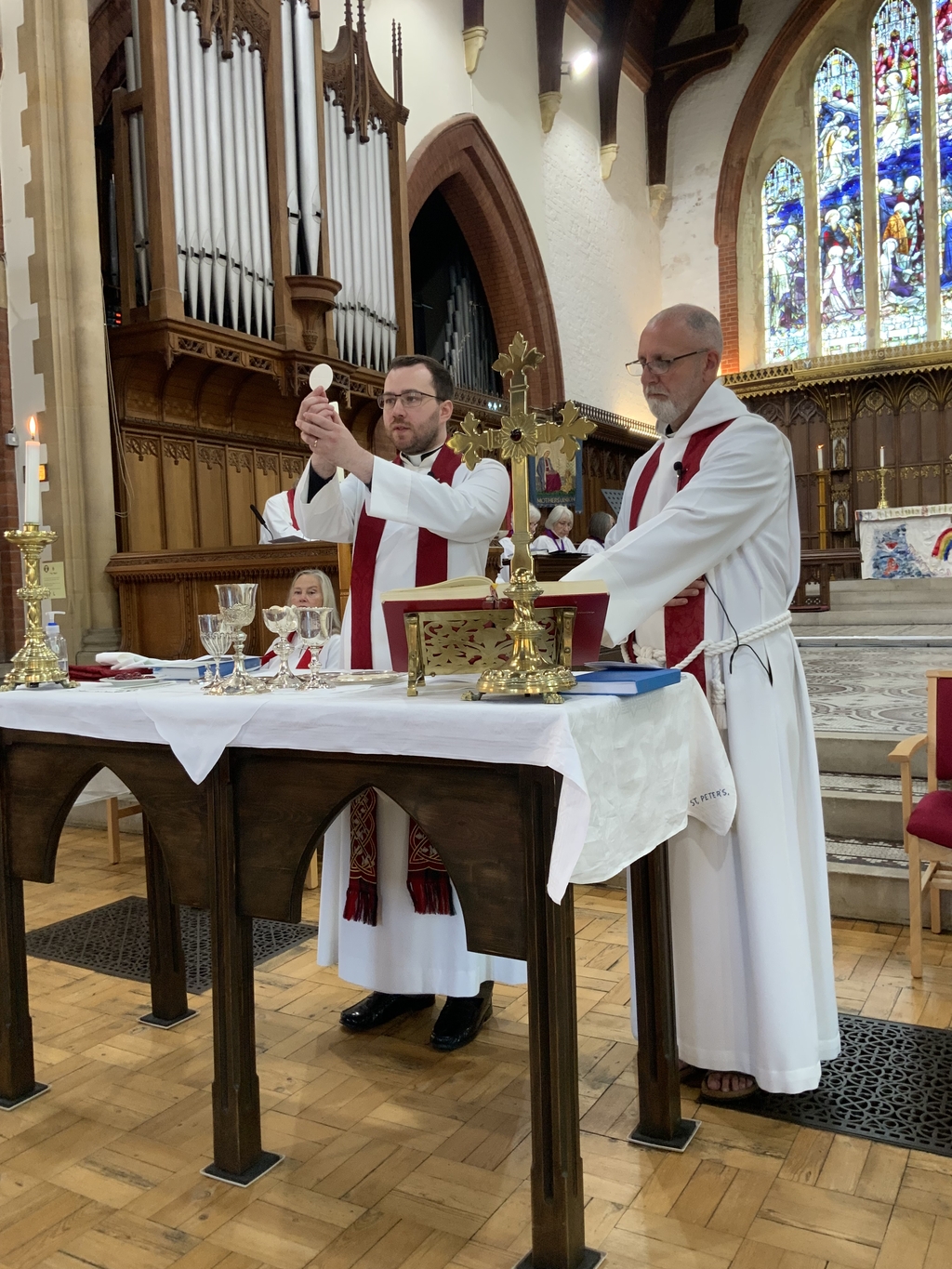What is peace?
Perhaps your first thought is the relief people felt in 1945 when the horrors of the Second World War came to an end. That moment when a feeling of safety, security, and perhaps even disbelief descended. When people could once again look towards a hopeful future.
Perhaps you’re drawn to that feeling of putting your feet up after a busy day. Taking the chance simply to ‘be’ as you begin to unwind and relax.
Perhaps you’re reflecting on the wars of today, Russia and Ukraine, Israel and Palestine, wishing and praying for peace.
Or is a longed-for feeling of peace closer to home? You may have a sense of turmoil or strife that won’t disappear.
Regardless of where our minds are drawn to, we all understand that ‘peace’ means more than just the absence of conflict.
For example, a ‘just’ peace in Ukraine would see more than an end to ghting. It would surely include the return of land, reparations and support for the bereaved on both sides, as well as the repatriation of those captured or kidnapped.
A ‘just’ peace might fulfil many legal and ethical responses to a terrible conflict. Yet the spiritual and holistic nature of peace may still be elusive.
Inner peacefulness, inner harmony and outer acceptance of events and people cannot be forced through a legal process.
For some people, that broader sense of well-being and peacefulness may always be elusive. So, what do we mean when we talk about wanting to achieve peace and praying for peace? If we look at our understanding of the word peace we go through a few stages of development.
Our understanding of peace develops, in part, as a translation for the Hebrew word ‘Shalom’. Before the Biblical exile of the Israelites, Shalom could be used to refer to good personal health, nationwide justice or prosperity. It could refer to victory in war or represent the victory of Yahweh over chaos. After the Israelites returned from exile in Babylon, however, something changed in their understanding of Shalom. There are even hints in Jeremiah with denunciations of false Shalom.(1) Shalom becomes a term for a longed-for and hoped-for dream.
A humble dream of unity amongst all people with God above all the nations. (2) A vision of a world where, as you might have heard it said once before:
They shall beat their swords into ploughshares and their spears into pruning hooks. (Is 2:4) That dream of Shalom has a far greater scope than just relationships between nations. Peace and Shalom speak to our responses to each other, friends, family, strangers and even ourselves. This idea of shared peace amongst all was arguably central to the early church. In the second or third century, an unknown author wrote the Epistle to Diognetus, which describes Christians living their faith in their words and actions. It says: “They display to us their wonderful and confessedly striking way of life. They dwell in their own countries but simply as sojourners. As citizens, they share in all things with others and yet endure all things as if foreigners.” In other words, they showed a dedicated love to others and shared in the suffering of those on the margins of society. Regardless of where those people came from.
Tertullian writing in the second century is astonished at how Christians showed love to one another. Seemingly regardless of social divisions. They shared peace.
Just as Christians in services throughout the world take part in sharing peace. God challenges us continually to share His peace.
What other message can we take from the calling of St Matthew?
In the Gospel reading today (Mt: 9:9-13) Matthew is collecting taxes in a toll booth. These were taxes levied on the transport of goods. Despite what you might think, a toll collector like Matthew is unlikely to have been rich. While many tax collectors ultimately became rich through rather unscrupulous means, someone working in a toll booth would not have had the same opportunity to set tax rates or pocket excess for themselves.
It is more likely that Matthew was on the front line of tax collection, facing hostile merchants who were unhappy about paying levied rates on their goods. Anyone in Matthew’s position whodid become rich would probably have been perceived as dishonest. (3) Honest or not, tax collectors have never been popular. This was especially true in the province of Judea.
When it came to picturing the promised Messiah, many Jews of the time viewed them as a warrior king who would drive o the hated occupiers and restore Israel to the glory days of David and Solomon.
Those collecting taxes on behalf of the occupying regimes were seen as collaborators, betrayers of their culture and faith, and people to be reviled. Into this world of people rejected by society and pushed to the margins comes Jesus. Who greets Matthew, tax collectors like him and sinners with peace.
Jesus’s offer of “follow me” isn’t just a literal invitation to come with him. It’s also the same invitation that Jesus o ers to everybody to follow His ways. To love one another as He loves us. To greet one another with peace. Especially those whom society so often rejects.
Others will always try to condemn Jesus because of His love for those on the margins.
Look at the words of the Pharisees, questioning why Jesus eats with the tax collectors, seeking to condemn Christ by association with these supposedly dreadful people. Just as people today condemn others for sharing peace with those on the margins.
Yet Jesus continues to eat with the tax collectors. Jesus continues to share His love and peace with all those whom society tries to reject. It is through a hated tax collector that we are blessed with one of the Gospels.
According to Christian tradition, Matthew will go on to bring the Good News to Ethiopia, which will lead to his martyrdom. It will also lead to Ethiopia being counted as one of the first regions of the world to adopt the Christian faith officially.
Ultimately, Matthew’s humble calling reminds us, in the words of Pope Francis, that “we must be peacemakers and our communities must be... places where we learn to overcome tensions, foster just and peaceful relations between peoples and social groups, and build a better future.”
When you share the peace in this service, think of Jesus’s invitation to Matthew. Think of Jesus’s call to share His peace with those on the margins. Think about God’s love for you and those around you, and share His gift of love and peace.
ٱل ساُماعلاْيُكْم-As-salāmu ʻalaykumשל ם- šālōm
Peace be with you.
Amen.
1 Andrew Shanks in the Oxford Companion to Christian Thought, 2000, p524
2 Ibid
3 Social sciences commentary on the synoptic gospels, p81













